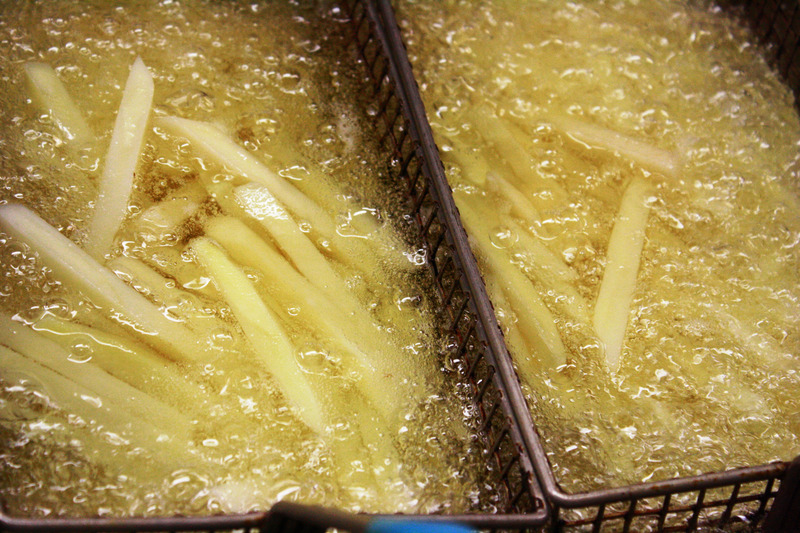Used cooking oil, or “yellow grease,” might seem like a mundane byproduct of your restaurant operation. However, for some, it’s a surprisingly valuable commodity. Unfortunately, this has led to a growing problem – cooking oil theft. Cooking oil theft has been making headlines at an alarming rate proving it and can occur anywhere including Griffs Grill in Michigan and Chik-fil-a in New York costing the industry millions of dollars every year. Here’s what you need to know about the theft, its impact, and how to prevent cooking oil theft.
Why Steal Cooking Oil and Is It Really So Bad Someone Took It?
Used cooking oil might not seem like a high-value target, but it has several uses making it attractive to thieves including the production of biodiesel, animal feed, and taking it to sell to processing facilities for their own gain. While the oil itself might have a modest per-gallon value, i does add up plus it has an impact which goes beyond immediate loss. Here are some additional costs to consider:
- Environmental Damage: Improper disposal of stolen oil leads to environmental hazards like clogged sewers and water contamination.
- Loss of Revenue: Regular oil collection from a reputable company ensures proper disposal and sometimes generates a small income for your business. Missing oil translates to lost potential revenue.
- Potential Fines: Failure to properly dispose of used oil can result in fines. If stolen oil is improperly disposed of, your business may be held accountable.
Signs of Cooking Oil Theft
While we hope for the best and for people not to steal, its important to know what to look for so you don’t become a victim. Some signs to watch out for include:
- Unexplained Drops in Oil Levels: Regularly monitor your cooking oil container levels. Significant decreases that don’t correspond with increased cooking volumes could be a red flag.
- Tampering with Containers: Look for signs of damage on your oil container such as a hole or your lock being broken.
- Suspicious Activity: Be wary of unfamiliar individuals loitering around your restaurant, especially near your container, during off-hours.
- Spilled Oil Around Cooking Oil Containers: Spills can occur during the theft process, leaving a trail of evidence.
- Unfamiliar Collection Vehicles: Be familiar with the appearance and markings of your authorized used oil collection company’s vehicles. Most thieves will use unmarked vans or trucks with large plastic barrels to collect in.
Protecting Your Valuable Grease: Prevention Tips
By taking proactive steps you can significantly deter cooking oil theft. While the best way to prevent cooking oil theft is by being vigilant, here are some other prevention strategies:
- Secure Your Cooking Oil Container: Place it inside your trash corral with a lock on it. Secure your cooking oil container with a lock on the lid itself. Consider alarm systems or security cameras specifically focused on these areas.
- Schedule Regular Oil Collection: Partner with a reputable used oil collection company and maintain a consistent pick-up schedule. This eliminates opportunities for thieves and ensures proper disposal.
- Employee Awareness: Educate your staff about the risks of cooking oil theft and encourage them to report any suspicious activity.
- Maintain Proper Lighting: Well-lit areas around your cooking oil discourage theft attempts that rely on darkness for concealment.
If you suspect you’ve been a victim of theft, it’s essential to act immediately by contacting law enforcements to file a report, inform your cooking oil collection company and reviewing your security measures.
Working Together for a Theft-Free Future
Cooking oil theft is a rapidly growing concern for restaurants, large and small. However being informed, proactive, and working with reliable partners such as SLM Facility Solutions Nationwide, you can protect your valuable resources and ensure proper disposal. Ready to get started? Schedule an introductory call with SLM Facility Solutions now to uncover how we can help you streamline your facility services allowing you to focus on serving you customers and growth.



